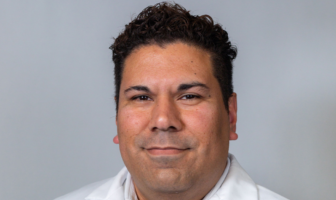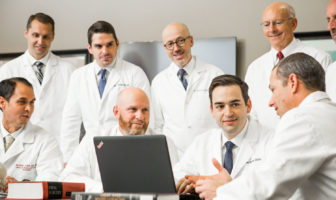Amy Sweet shares what you need to know about at-home care.
Sponsored Content
Amy Sweet is the founder and CEO of Halcyon Home, a woman-owned and locally based private-duty, home-health and hospice continuity-of-care com- pany. Sweet earned her master’s degree in health science from the University of Pennsylvania, becoming a certified physician assistant. Her work history includes oncology, gastroenterology and geriatrics. Her dream of creating a continuity-of-care company with concierge-level care became an award-winning reality, thanks to a handpicked team that shares her love of care. Halcyon Home provides private-duty (nonmedical), home-health (medical) and hospice (medical) care.

What is the difference between home care and home health?
Home care is often referred to as private-duty care or personal-assistance services. Home care includes a private contract created to provide one-on-one assistance for your loved ones with activities of daily living, or ADLs. ADLs include eating, bathing, dressing, toileting, and maintenance of bladder and bowel function and transferring. Caregivers can assist with all these, as well as medication reminders and administration. Home care is nonmedical assistance. Home care is paid through personal savings or long-term care insurance. Home care can be short durations of time or as much as 24/7. Home health is continued medical care for patients who are considered homebound and have a skilled need. Home health requires a doctor’s order and a face-to-face visit with a medical provider. Home health can include physical therapy, occupational therapy or skilled nursing. Home health is covered at 100 percent through traditional Medicare, with no copay or additional cost. Medicare replacement plan costs vary. Qualifying events include a new diagnosis, hospitalization, a fall, a new prescription, decline in ADLs, unsteady gait/balance, wound care, a change in medical condition or a decline in mobility.
What is the difference between palliative care and hospice?
Palliative care improves bothersome symptoms and can take place at any time of the patient’s life and for any disease process. Palliative care’s main focus is pain management and patients may still seek curative treatments. Hospice is care at the end of life that Medicare defines as the expected last six months. Hospice care is similar to palliative care, as they both focus on pain management. Hospice care is provided wherever the patient lives—home, assisted-living facility, nursing home or hospital—and includes a 24/7 on-call interdisci- plinary team. Hospice is a holistic approach to end-of-life care that includes case management and is overseen by a medical doctor and registered nurse, a home health aide, a social worker and a chaplain. The goals of hospice care include comfort, safety and cleanliness, as well as meeting the specific patient’s and family’s goals and needs. All medications related to the primary diagnosis are provided by and covered under the Medicare hospice benefits, including all durable medical equipment: hospital bed, oxygen, shower chair and inconti- nence supplies.
How do I plan for Mom’s and Dad’s care?
The most important factor in planning for a patient’s care is to understand that patient’s specific goals and wishes. The right time to learn these goals is before the onset of a debilitating illness. This conversation may be difficult, but it can also be rewarding and strengthen the parent-child bond. It can be an opportunity for life reflection and sharing. There are many resources available. Put “end-of-life decision-making” into your favorite search engine. Here are a few I like: vitaltalk.org, nih.org and deathwithdignity.org. In the absence of such conversations, one has to rely on the caregiver’s (child, spouse, parent, medical power of attorney) best assessment of what the patient would want, evidenced by things the patient may have said or done previously. This is called “substituted judgment.” At Halcyon Home, our teams of experts are available to assist with difficult conversations and can provide solution options.
For more information, visit myhalcyonhome.com.



